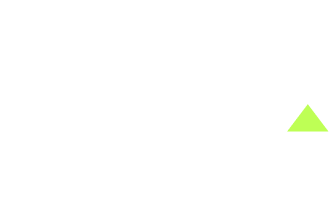
EMMA’S GUIDE TO EARNING: HOW WOMEN CAN GET WHAT THEY DESERVE
Last year, the theme of 2024 International Women’s Day (IWD) was ‘Count Her In: Invest in Women, Accelerate Progress’ – in other words, giving women opportunities to build their capabilities, and strengthening their capacity to learn, earn and lead.
These topics are always relevant to us at UPco. So, as we ready ourselves for IWD this year, we’ve rounded out our 2024 series by sitting down with our valued external Communications Consultant and “voice”, Emma Heath, to tackle the thorny subject of fair pay for women. Having run her own business for 12 years, Emma has a few valuable lessons to share on the barriers that may prevent women from earning what they deserve. Plus, a few tactics to overcome these obstacles – whether you’re self-employed or working for someone else.

Emma, you’ve had your own business for a while. Was moving into self-employment a financial decision?
Yes, because to be brutally honest, I felt like I wasn’t being adequately valued for the work I produced while working for another business. One of my strengths is that I am efficient – I can get things done quickly and to a high standard. But in a conventional employment situation, this just led to being given more work for the same pay. It didn’t matter where I worked, the story was always the same. I wanted to be remunerated for the work I produced, not the hours spent at a desk. Within a year, I was easily making what I had in full-time employment. This happened much more quickly than anticipated.
Do you think this can translate to a conventional employment situation?
Absolutely! The key is being able to negotiate your pay and get remunerated for the value you add. What is the outlay or effort you are getting compensated for? In a country like Australia, with decent fair work practices, if a salary feels fair to both you and your employer, it’s probably a good deal. If you feel resentful or ripped off, you’re either not negotiating effectively or you’re in the wrong business. Harsh but unfortunately true.
It’s a process of constant self-evaluation. Sometimes, an employer loses sight of how much someone has evolved, and what their changed market value would be. But you also need to be honest with yourself about how much value you’re providing – and remember that, as women, we often tend to deflate that number.
So, how would you approach things like salary as an employee?
One main tip I have for requesting pay rises: link your request to the value you have delivered for the business. Not the cost of living, not tenure, not another employee’s salary (unless god forbid, there’s a blatant gender pay discrepancy). A pay rise should reflect what you do to ensure the success and productivity of your employer’s business – whether it’s sales figures, the creation of intellectual property, risk mitigation or clicks on a website. It’s a commercial decision for employers, not a personal one. Bring a case, not a plea.
In terms of the number, this encompasses the quality of the work, but also things like reliability, hitting deadlines, having knowledge of their vision, anticipating issues before they happen and responding to changes.
My first job was a type of traineeship where I earnt $500 a month. Looking back, it was massively exploitative. The culture was also horrific. I was one of the only women in a massively male-dominated creative department. A lot of the creative and work opportunities were doled out at the pub after hours. I wasn’t up for drinking with the boys (and let’s face it, I didn’t have time). So, it was unfair professionally as well as financially. Sadly in cases like those, the only avenue to getting paid fairly turned out to be moving jobs.
Do you recommend moving roles as a way to get better pay?
No! I was really disappointed when I had to do this. I think it’s better to develop as an employee as much as possible within a company – and it’s certainly better for the employer to keep people around. In nearly every role, I would request a pay rise when I felt it was fair, based on the work I’d contributed.
I was almost always rejected and would find a better offer elsewhere. The annoying part is that the original employer would almost always come to the party and match the offer… but it would inevitably be too late. I would have either signed the new contract, or lost faith in them. They just never seemed to think I’d actually leave. I do wonder if some of that was not taking a young female seriously.
What about negotiating pay for new roles in general?
I do believe that the initial offer for a job is one of your absolute greatest opportunities to negotiate on pay. It’s a generalisation, but I have noticed that men are more comfortable asking for more than they think they’ll get… let alone what they think they deserve! Most women tend to be less comfortable pushing for higher pay. I wonder if women worry more that they’ll be unable to deliver on inflated expectations that go with inflated salaries? It’s certainly been an inhibiting factor for me at times. But trust me, this kind of thought is unlikely to cross the mind of most men. So, my advice at this stage is to be your own cheerleader and go hard!
When will you know it’s time to ask for a raise?
If you’re constantly producing high-quality work, it’s time for a chat! But as women, we tend to doubt ourselves. Keep a record of your work, your wins, your areas for improvement and your development. This helps reduce subjectivity and feeling like you might not have done ‘enough’. It gives you proof of what you bring to the table.
Asking for a well-deserved raise should be in BOTH yours and your employer’s best interests. A good employer will want to keep you by paying you what you truly deserve, or they’ll give you clear directions on how to get to the next level. Of course, situations tend to have an expiry date and there are times when a company cannot give you what you want or deserve (whether it’s money or overseas exposure). But I would hope that, if your salary (and other) expectations are reasonable, a good employer can see the value in meeting them.

Well, that’s a wrap for our IWD 2024 series. Thank you, Emma, for your hard-hitting answers on worth in the workplace – and for asking us thought-provoking questions about opportunities we can give women to learn, earn and lead throughout our IWD series. Head here for the full series of articles, where we explore balancing work and study, teaching the next generation of women and finding fulfilment at work.
